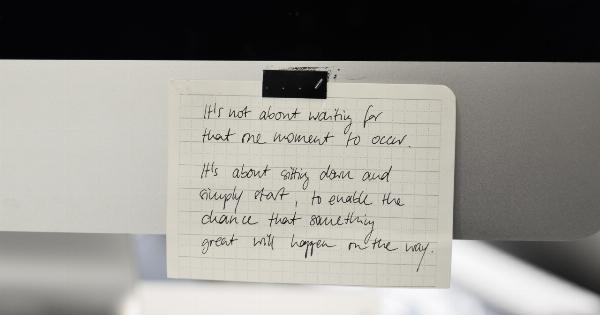It’s a common human tendency to admire, to look up to someone, to be inspired by them. As children, we often have heroes – be it a superhero, a famous athlete, or a successful businessperson.
As we grow older, we continue to have role models, people we aspire to be like or to emulate. Sometimes, these role models are public figures or celebrities. Other times, they are our parents, teachers, or other people in our lives.
However, as we learn more about these people – as we get older, read more, gather new experiences – our admiration for them can diminish. We see their flaws, their inconsistencies, their mistakes.
We start to question whether they really deserve our admiration, or if they are even worthy of it.
The Problem with Blind Admiration
There is nothing inherently wrong with admiration – in fact, it can be healthy and motivational. Having someone to look up to can give us a sense of purpose and a model to follow. But blind admiration is problematic.
When we place someone on a pedestal, we often overlook their faults and weaknesses. We see them as flawless and perfect, which is simply not true. Everyone has flaws, and everyone makes mistakes.
Moreover, blind admiration can prevent us from seeing the bigger picture. We may focus on the good things our role models do, but ignore the negative consequences of their actions.
We may be so busy idolizing them that we don’t take the time to think critically about what they are saying or doing.
When Admiration Fades
As we grow older, and as we gain more knowledge and experience, we start to see our role models in a different light. We may discover that they have done things we don’t agree with, or that their beliefs or values clash with ours.
We may realize that they are not as talented or intelligent as we initially thought.
When this happens, our admiration fades. We start to question whether these people deserve our admiration, or whether we were just being naive. We may feel disappointed, angry, or betrayed.
The Rise of Skepticism
When admiration fades, skepticism often takes its place. We start to question everything we thought we knew. We become more critical of our role models’ actions and beliefs. We become more cautious in accepting what they say or do at face value.
This is not necessarily a bad thing. Skepticism can be healthy. It can help us see things more clearly, and prevent us from blindly following someone without thinking for ourselves. It can also help us form better judgments and make better decisions.
The Problems with Skepticism
However, skepticism can also be problematic. When we become too skeptical, we may become cynical. We may start to see everything as flawed, everyone as manipulative or insincere.
We may start to doubt even the good things in life, feeling like nothing is really true or honest.
Moreover, too much skepticism can prevent us from forming meaningful relationships or connecting with others. We may be so suspicious of people’s motives that we don’t allow ourselves to trust them, to let them in, or to be vulnerable with them.
We may become isolated and lonely.
Striking a Balance
So, how do we strike a balance between admiration and skepticism? How do we avoid blind admiration, while also avoiding excessive skepticism?.
One way is to embrace a healthy dose of skepticism, tempered with a healthy dose of humility. This means being open to the possibility that we may not have all the answers, and that other people may have valuable insights or perspectives.
It also means being willing to question our own beliefs and assumptions, and to admit when we don’t know something.
Another way is to recognize that everyone – even our role models – are human. They are flawed, they make mistakes, and they have weaknesses just like we do.
Acknowledging this can help us avoid the pitfalls of blind admiration, while also avoiding excessive skepticism.
Conclusion
In conclusion, when admiration fades, skepticism often takes its place. While both admiration and skepticism can be healthy in moderation, blind admiration and excessive skepticism can both lead to problems.
We can strike a balance by embracing a healthy dose of skepticism, tempered with humility, and by recognizing that everyone is flawed and human.































